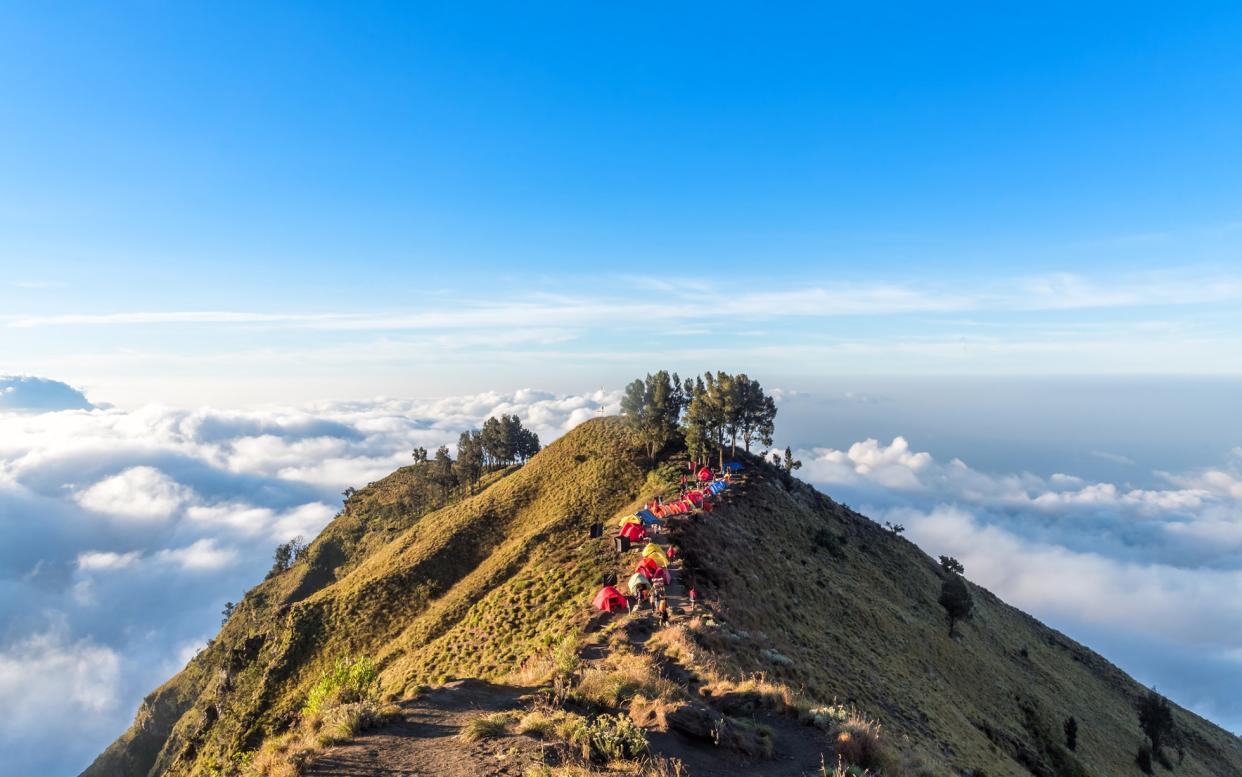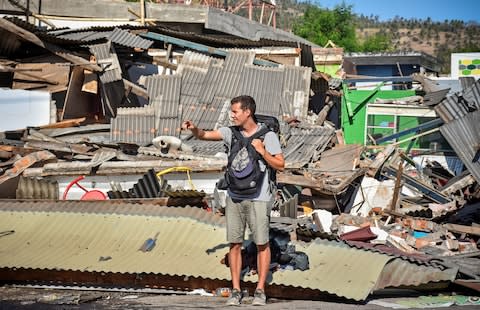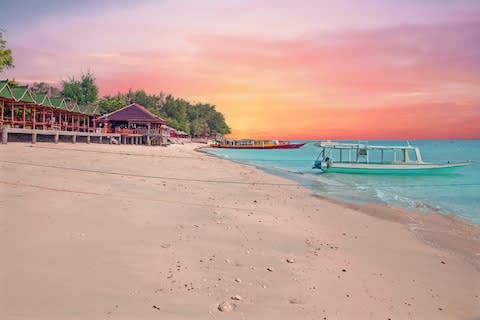Is Lombok safe to visit – and will its vital tourism industry recover?

Even by the standards of Indonesia, an archipelago born from a violent conflict between continental plates, the island of Lombok has suffered of late.
On July 29, an earthquake measuring at 6.4 on the Richter scale struck the flank of the Mount Rinjani volcano, a popular tourist climb, killing 16 people and trapping hundreds on the mountain. Last week, a much larger quake rocked northern Lombok, which authorities measured at 7.0. So far, more than 100 bodies have been found, while around 80,000 locals are homeless, traumatised and wracked by terrifying aftershocks.

In the face of a human catastrophe of such magnitude, it might seem tasteless to consider the impact of the disaster on tourism. Yet tourism is Lombok’s second largest industry after agriculture. A projected two million visitors this year should have supported a boom: not just hotels, restaurants, dive centres, travel agents, speedboats, taxis, guides and souvenir stores but a thriving subsidiary economy.
Earthquake epicenter in Lombok, Indonesia
“Before the earthquake we employed 240 staff: that’s 240 families who depend on the business of the hotel to actually live,” said Stephane Servin, owner of The Santosa Villas and Resort in the beachfront district of Senggigi, who will have to close for around eight months to rebuild. “If the hotel closes, some of the staff will leave: so all the people who rent housing to my staff will lose business. It’s a multi-level impact.”
Over the last couple of decades, Lombok has repeatedly been touted as the new Bali. There are obvious parallels to its sibling across the Lombok Strait: the sacred volcano, the lush rice fields around Tetebatu, the vibrant scene on the tiny, car-free Gili islands off the northwest coast and the sweeping beaches and dramatic promontories of the south coast. Oberoi, Four Seasons and Indonesia’s antique-filled Tugu group have a presence on the mainland, while none other than David Hasselhoff is an investor in a luxury development on the island of Gili Meno.
Foreign Office advice | Is Lombok safe to visit?
Yet the quakes – and scenes of panicked visitors jostling for places on craft evacuating Gili Trawangan – could set development back years. “Lombok was very badly affected by the Bali bombings [in 2002],” said Stuart McDonald, publisher of south-east Asia travel website Travelfish.org. “People think of Bali as bearing the brunt of that impact, but it was much more far-reaching on Lombok, particularly in more remote areas.”
Others are more optimistic. “The impact is always less than you would expect,” said Oli Christen, owner of Freedive Flow free-diving school on Gili Air, citing the challenges when Bali’s sacred volcano, Mount Agung, erupted. “When Agung went off in November and the airports [on both Bali and Lombok] were closed, one or two months were affected, but by February it was almost back to normal.” One Gili Air hotelier intended to reopen as soon as power returned: crews from Indonesia’s state electricity company are already on the island.

It is the simple houses of Lombok’s poor inhabitants that were hardest hit by the quake. While poorly built structures toppled rapidly, much of the island’s tourist infrastructure remains more intact than imagery would suggest. At the time of going to press, the Gili islands and Rinjani volcano were closed to visitors, the focus in the north remained on helping disaster victims, but the south coast beaches remained open for business.
“The main port is still working; every harbour is working; the airport is working,” said Taufan Rahmadi, founder of Temannya Wisatawan (Tourism Friends). “The roads are OK.”
Besides donating to organisations such as the Indonesian Red Cross, visitors can help, McDonald argues, by not cancelling their trip. “If I had a trip planned next week, I’d be going to Kuta instead – but it’s certainly not time to cancel your trip to Lombok,” he said. “This is when Lombok needs you.”
